1. Some questions are labeled (F: first timer) and (R: returnee). First time attendees should focus on the "F" questions; returnees on the "R" ones. Everyone should answer the questions without designations. In all cases, return attendees shall not reveal the answers to first timers until sufficient effort is expended. (And, any bribes must be shared 50:50 will the Scavenger Hunt creators.)
2. You may consult any source anywhere but please be sure to indicate where you got your information. And watch out for bad websites! Actually, if you find any mis-information, make a note of it for the blog.
UAT13.01 Scavenger Hunt #0: The Arecibo Telescope
This scavenger hunt will explore some details of the Arecibo telescope and the Arecibo Observatory. 0.0 (F) Why do ALFALFA team folks always start enumerated lists with "0", not "1"? 0.1 (F) Below is a schematic diagram of the AO telescope as viewed from above. The 900 ton platform hangs in midair on eighteen cables, which are strung from three reinforced concrete towers. One is 365 feet high, and the other two are 265 feet high. The towers are named as if they were on the face of a clock oriented with "12" to the north: T4, T8 and T12. Which tower is the tallest of the 3?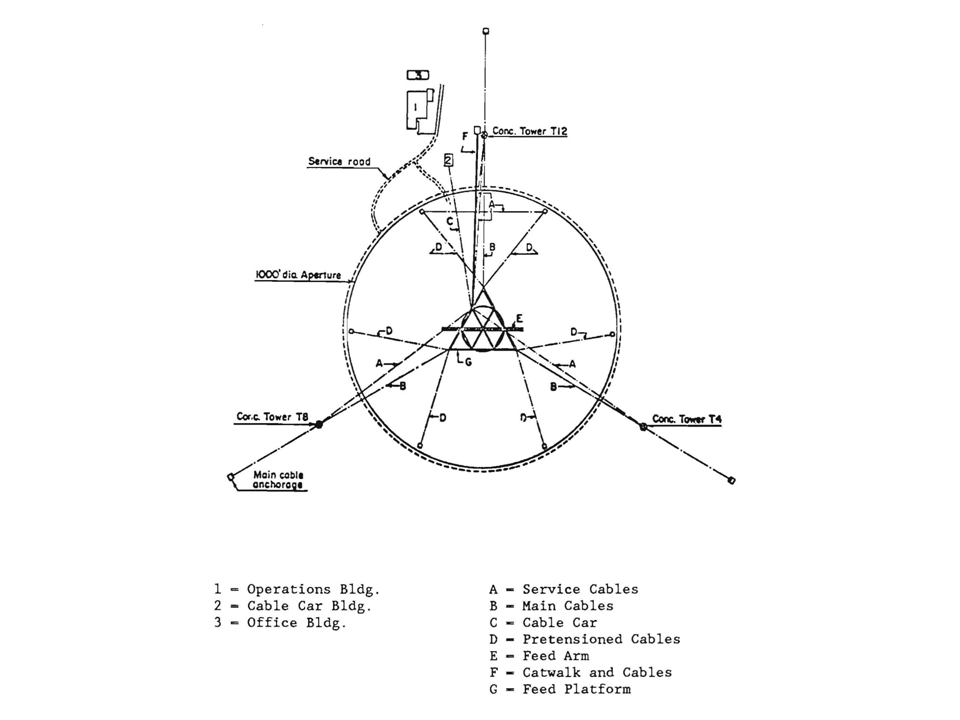
Note: this map predates the ground screen/upgrade.
0.2 Riccardo Giovanelli is the PI of ALFALFA but cannot be with us this year. For those of you who do not know him, his absence is a great loss, because he is by far the most honorific of all of us. Where on the site can you find a framed photograph of what is referred to as "Saint Riccardo" (complete with halo)?
0.3 When did the formal opening ceremony of the Arecibo Ionospheric Observatory take place?
| 0.4 (R) Let us suppose that there are some extraterrestrial beings in the vicinity of the Solar System whose lifeform resembles that of a many pointed star and that they intercept a junk U.S. spacecraft containing a partly degraded plaque showing the illustration to the right. Where does this illustration come from and what is its intended meaning? |
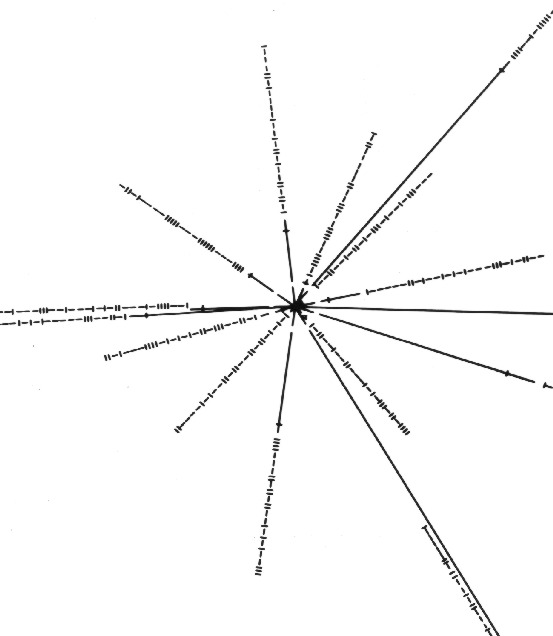 Click here for larger view. |
0.5 (F) In the movie "Contact", Jodie Foster and Matthew McConoughy have hanky panky in what building on the site?
0.6 (F) Below is a schematic diagram of the local sky as observed from Arecibo.
Imaging that you are standing at the
center looking up. Label on this diagram the following:
| 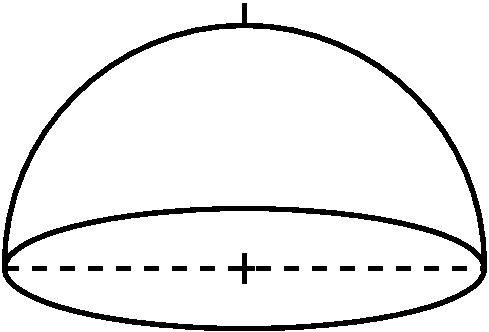 |
0.7 (R) One of the "dark galaxy" candidates that we will observe in the confirmation LBW observations is known (to us) as AGC 239077; it is the last target that you investigated for the 2013 UAT observing proposal, where its name is given as HI131623.7+161640. You can also find relevant links here (the web page containing examples of targets for our observing run). The target coordinates (as given on that web page) are (R.A., Dec.) = (199.1008, 16.2786). If we convert those RA,Dec coordinates in degrees (199.1008, 16.2786) to (hhmmss.s,Sddmmss), we get (13h16m24.2s,+16d16'43"). Why don't the (apparent) coordinates in the source name match exactly the coordinates listed for the target in the table (which, by the way, are correct)?
0.8 (R) What is the maximum zenith angle at which the L-band wide (LBW) receiver can be positioned?
0.9 Why can't we observe a source directly overhead?
0.10 Below is a schematic diagram of the AO platform as viewed from the side.
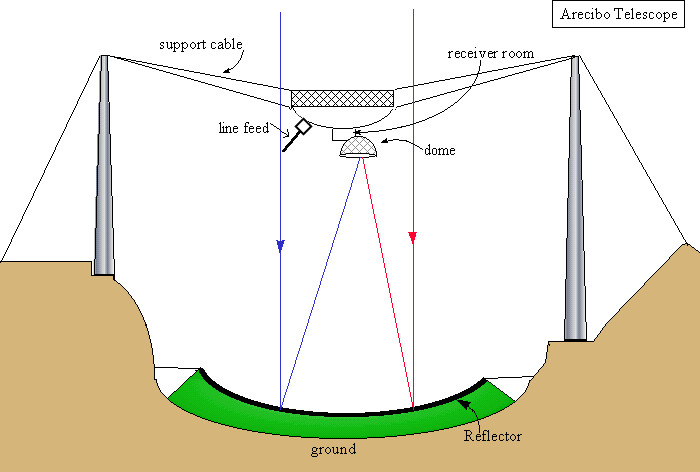 a. If we were going to observe AGC 239077 just as it crosses the meridian, at what azimuth
should we position LBW?
a. If we were going to observe AGC 239077 just as it crosses the meridian, at what azimuth
should we position LBW?b. What do we mean by an "uphill feed"?
c. What are the advantages of Gregorian optics over line feeds?
d. At what frequency does the very long line feed work?
e. What popular movie features a fight between the hero and the bad guy on the long line feed?
0.11 Beams, drifts and the resolution of radio telescopes a. What is the beam width of the L-band wide receiver?
b. How does this compare to the beam width of ALFA?
c. How long does it take for a source to drift across an ALFA beam?
d. What is the typical "seeing" (point spread function) of an image taken at the Foggy Bottom Observatory? (Please note the policy about bribes, Colgate people.)
0.12
Here is a schematic diagram of the
hour angle - declination plane as observed from Arecibo. Familiarize yourself
with this diagram and how to use it.
(Note that this one
comes from the good old days, so the limit designations don't include
the Gregorian or LBW.)
|
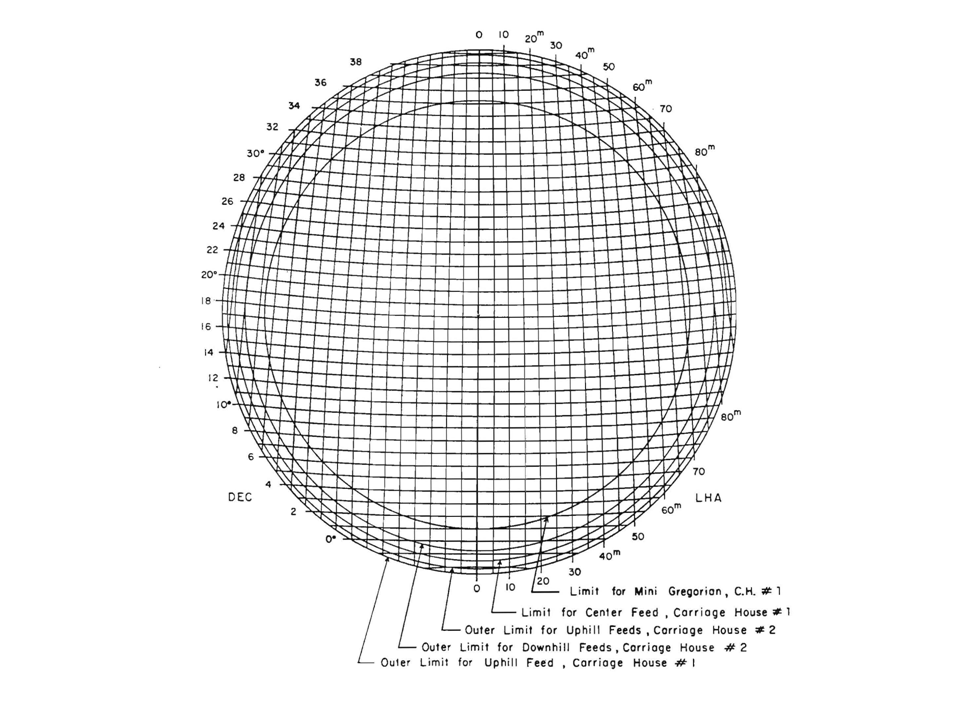 |
This page created by and for the members of the ALFALFA Survey Undergraduate team Last modified: Fri Dec 7 11:16:31 EST 2012 by Martha
